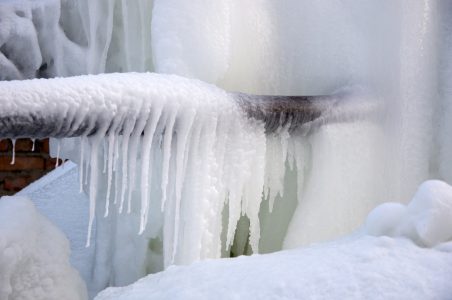Avoid Frozen Plumbing in Cold Weather: Pro Tips
Avoid Frozen Plumbing in Cold Weather: Pro Tips
Blog Article
We have stumbled on the article pertaining to How to Prevent Your Pipes From Freezing listed below on the net and figured it made sense to write about it with you here.

Winter can damage your plumbing, particularly by freezing pipes. Here's just how to avoid it from occurring and what to do if it does.
Introduction
As temperature levels decline, the risk of icy pipelines rises, possibly causing costly repair services and water damages. Recognizing just how to avoid frozen pipes is important for home owners in chilly environments.
Recognizing Icy Pipes
What causes pipes to ice up?
Pipes freeze when revealed to temperature levels below 32 ° F (0 ° C) for extended durations. As water inside the pipes ices up, it increases, putting pressure on the pipeline wall surfaces and potentially creating them to rupture.
Threats and damages
Icy pipes can lead to water interruptions, home damages, and costly fixings. Burst pipelines can flood homes and trigger extensive architectural damages.
Indications of Frozen Pipes
Recognizing icy pipes early can avoid them from bursting.
Exactly how to identify frozen pipelines
Seek decreased water flow from faucets, unusual odors or noises from pipes, and visible frost on subjected pipes.
Prevention Tips
Shielding at risk pipelines
Cover pipelines in insulation sleeves or make use of warmth tape to shield them from freezing temperature levels. Concentrate on pipelines in unheated or outside areas of the home.
Home heating strategies
Keep interior spaces properly heated, specifically areas with pipes. Open up cupboard doors to allow cozy air to distribute around pipes under sinks.
Shielding Outside Pipes
Garden tubes and outside taps
Detach and drain pipes garden tubes before wintertime. Install frost-proof spigots or cover exterior faucets with protected caps.
What to Do If Your Pipelines Freeze
Immediate actions to take
If you presume icy pipelines, keep faucets open up to alleviate pressure as the ice melts. Utilize a hairdryer or towels taken in warm water to thaw pipes slowly.
Long-Term Solutions
Structural modifications
Take into consideration rerouting pipelines far from exterior walls or unheated areas. Add additional insulation to attic rooms, cellars, and crawl spaces.
Updating insulation
Purchase high-grade insulation for pipes, attics, and wall surfaces. Correct insulation aids preserve constant temperatures and decreases the risk of frozen pipelines.
Verdict
Stopping frozen pipelines calls for positive measures and fast actions. By understanding the reasons, indications, and preventive measures, home owners can safeguard their pipes during winter.
Helpful Tips to Prevent Frozen Pipes this Winter
UNDERSTANDING THE BASICS: WHY PIPES FREEZE AND WHY IT’S A PROBLEM
Water freezing inside pipes is common during the winter months, but understanding why pipes freeze, and the potential problems it can cause is crucial in preventing such incidents. This section will delve into the basics of why pipes freeze and the associated problems that may arise.
THE SCIENCE BEHIND FROZEN PIPES
When water reaches freezing temperatures, it undergoes a physical transformation and solidifies into ice. This expansion of water as it freezes is the primary reason pipes can burst. As the water inside the pipe freezes, it expands, creating immense pressure on the walls. If the pressure becomes too great, the pipe can crack or rupture, leading to leaks and water damage.
FACTORS THAT CONTRIBUTE TO PIPE FREEZING
Low Temperatures: Extremely cold weather, especially below freezing, increases the risk of pipes freezing. Uninsulated or Poorly Insulated Pipes: Pipes located in unheated areas, such as basements, crawl spaces, or attics, are more prone to freezing. Insufficient insulation or lack of insulation altogether exacerbates the problem. Exterior Wall Exposure: Pipes running along exterior walls are susceptible to freezing as they encounter colder temperatures outside. Lack of Heating or Temperature Regulation: Inadequate heating or inconsistent temperature control in your home can contribute to frozen pipes. PROBLEMS CAUSED BY FROZEN PIPES
- Pipe Bursting: As mentioned earlier, the expansion of water as it freezes can cause pipes to burst, resulting in significant water damage.
- Water Damage: When pipes burst, it can lead to flooding and water damage to your property, including walls, ceilings, flooring, and personal belongings.
- Structural Damage: Prolonged exposure to water from burst pipes can compromise the structural integrity of your home, leading to costly repairs.
- Mold and Mildew Growth: Excess moisture from water damage can create a favorable environment for mold and mildew growth, posing health risks to occupants.
- Disrupted Water Supply: Frozen pipes can also result in a complete or partial loss of water supply until the issue is resolved.
WHY CERTAIN PIPES ARE MORE PRONE TO FREEZING
- Location: Pipes located in unheated or poorly insulated areas, such as basements, crawl spaces, attics, or exterior walls, are at higher risk of freezing.
- Exterior Pipes: Outdoor pipes, such as those used for irrigation or exposed plumbing, are particularly vulnerable to freezing as they are directly exposed to the elements.
- Supply Lines: Pipes that carry water from the main water supply into your home, including the main water line, are critical to protect as freezing in these lines can affect your entire plumbing system.
- Underground Pipes: Pipes buried underground, such as those connected to sprinkler systems or outdoor faucets, can be susceptible to freezing if not properly insulated.
https://busybusy.com/blog/helpful-tips-to-prevent-frozen-pipes-this-winter/

Hopefully you enjoyed our topic about Winter Plumbing Precautions: Preventing Frozen Pipes. Many thanks for taking time to read our article post. Sharing is nice. Helping people is fun. Thank you for going through it.
Book 24/7 Report this page